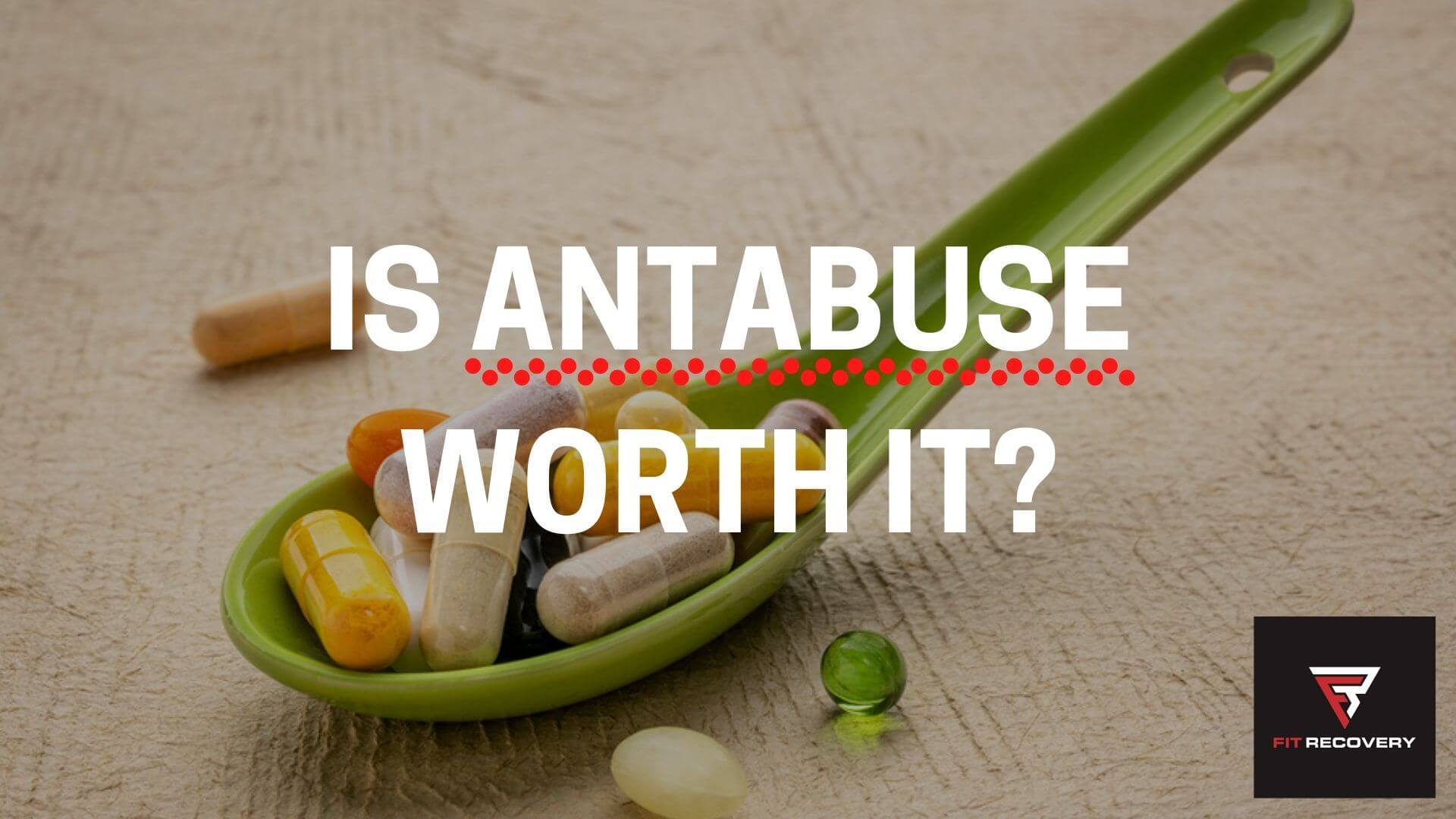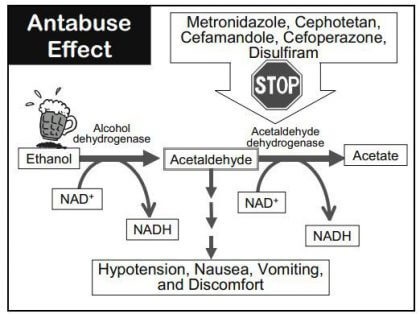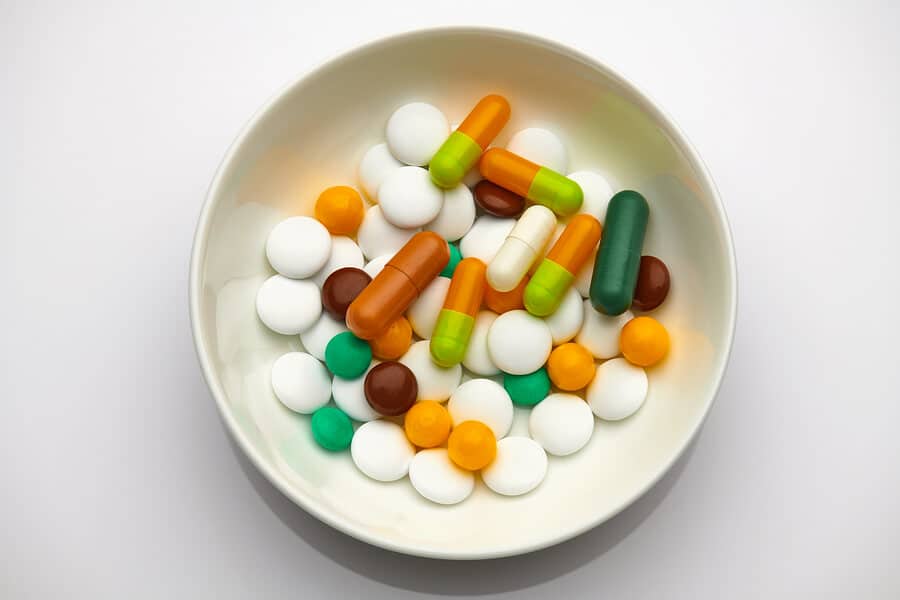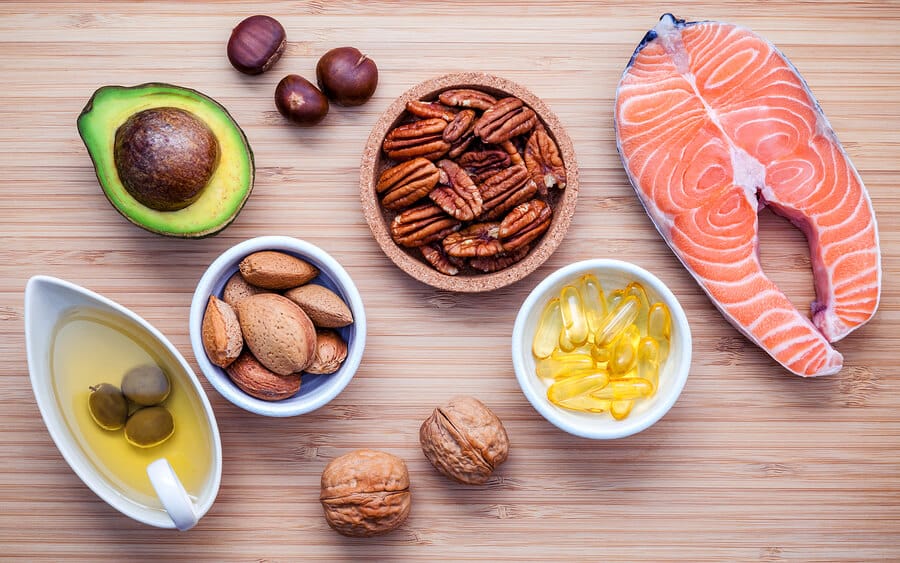It’s important to understand the Antabuse reaction when drinking as well as other Antabuse side effects before deciding to use this medication. It is quite popular among 12-step rehab programs, for reasons that we will examine.

Antabuse is the brand name for a prescription drug called disulfiram. This compound causes severe illness when combined with alcohol, and it stays in your system for up to two weeks. In theory, it provides a strong incentive to avoid alcohol, no matter how bad cravings can get.
This article will focus on the its reaction to alcohol and other Antabuse side effects. We will also review underlying mechanisms, research studies, and dosage information. We will then discuss alternatives, including prescription drugs, natural remedies, and over-the-counter supplements.
Whether you decide to use it or not, you may find that some of these other solutions can help repair your body and brain (and extinguish alcohol cravings) in ways that this drug cannot.
Overview & Side Effects
In 1951, Antabuse became the first FDA-approved prescription medication for treating alcoholism. It was a serendipitous discovery, strangely occurring because the American rubber industry introduced disulfiram as a chemical component to aid in the vulcanization of tires.
After a factory doctor investigated reports that tire workers began getting sick after drinking alcohol, disulfiram was isolated and found to be effective at creating painful adverse reactions when alcohol is consumed. (source)
Simultaneously, in Denmark, researchers testing disulfiram as a parasite treatment made the same connection with alcohol. Soon afterward, it was produced and approved in the U.S.

Taken with alcohol, disulfiram produces severe side effects. The list of side effects below is from the U.S. National Library of Medicine:
Disulfiram plus alcohol, even small amounts, produce flushing, throbbing in head and neck, throbbing headache, respiratory difficulty, nausea, copious vomiting, sweating, thirst, chest pain, palpitation, dyspnea, hyperventilation, tachycardia, hypotension, syncope, marked uneasiness, weakness, vertigo, blurred vision, and confusion. In severe reactions there may be respiratory depression, cardiovascular collapse, arrhythmias, myocardial infarction, acute congestive heart failure, unconsciousness, convulsions, and death. (source)
These effects usually last between 30 minutes and a few hours, and in some cases for as long as alcohol remains in the bloodstream. The exact symptoms and their intensity cannot be predicted with certainty, and some people experience a lag of up to 30 minutes between ingestion of alcohol and onset of symptoms.
Patients receiving this medicine should not have ingested alcohol for at least 24 hours before receiving the drug, and they should not drink for at least two weeks after taking it.
In the late 1950s, after deaths were reported due to the combination of this medication and alcohol, guidelines were revised to call for lower dosages and a stronger focus on abstinence for patients receiving the drug.
Antabuse should never be given to anyone who is still under the influence of alcohol or who has not given their permission to receive this drug.
Even in the absence of alcohol, this medicine can produce side effects that are worth considering. These include:
- Drowsiness
- Decreased sexual ability in males
- Garlic-like or metallic taste in the mouth
- Headache
- Fatigue
- Rashes on skin
These side effects seem to be rare, but I have encountered reports of them firsthand – especially the loss of libido.
Even at lower dosages, it is so potent that common products like after-shave and sauces that contain trace amounts of alcohol can trigger a serious reaction.
How Does Antabuse Work?
This medicine works by blocking the enzyme in the liver that breaks down a toxic byproduct of alcohol.
Specifically, disulfiram inhibits the acetaldehyde dehydrogenase enzyme, which breaks down acetaldehyde into a less toxic compound called acetate.
Acetaldehyde is always produced when alcohol is consumed, and it is the toxin that is responsible for hangovers. Basically, it triggers hangover symptoms immediately and amplifies them by causing this toxin to build up to very high levels.

It also prevents dopamine, the brain’s pleasure chemical associated with reward and motivation, from being broken down properly. This can lead to excess dopamine in the brain, which can cause anxiety, restlessness, irritability, and high blood pressure. (For this reason, this medicine is being studied as a treatment for addiction to cocaine, which primarily affects dopamine.)
There is no tolerance build-up or addiction potential for this medicine. Longer duration of treatment with it correlates with more potent effects if alcohol is consumed.
Importantly, it does not reduce alcohol cravings. Unlike other medications for alcoholism that we have discussed on this site, it does not relieve symptoms of alcohol withdrawal or post-acute withdrawal (PAWS).
In recent years, this medication has often been either replaced by or prescribed in conjunction with the other two drugs that are FDA-approved for treating alcoholism:
While naltrexone is an opioid antagonist that shows the most promise in extinguishing alcohol cravings over time when consumed with alcohol, acamprosate can reduce alcohol cravings by calming down the hyperactive brains of alcoholics. Neither of these two drugs can reduce or prevent the Antabuse reaction to alcohol.
Does Antabuse Hurt Your Liver?
Studies have found that this medicine can result in acute liver injury for a small percentage of people. This concerning and potentially fatal side effect occurs in about 1 of every 10,000 to 30,000 patients who take it for a year. (source)
Symptoms of acute liver damage, while rare, typically arise between 2 and 12 weeks of taking it. They can include nausea, vomiting, dark urine, and yellowing of the whites of the eyes and skin. If you’re taking this medicine and notice any of these symptoms, be sure to consult a doctor immediately.
While there is some overlap between the symptoms that result from drinking while on this medication, dark urine and yellowing of the eyes and skin are always cause for concern. Get medical care if you are taking this and experience any serious side effects without drinking.
Does Antabuse Make You Lose Weight?
Interestingly, research has found that administration of disulfiram to mice resulted in up to a 40% decrease in body weight in only 4 weeks. (source) The scientists involved in this study suspect that this drug may contain some potent anti-inflammatory properties that could potentially be useful in mitigating Type 2 diabetes.
The mice in this study were middle-aged and were not given any exercise that could have explained the weight loss. Improvements in blood glucose and other inflammation markers were noted by the researchers.
It’s important to note that mice are not humans, and human research is needed before any conclusions can be made about using this medicine for weight loss. Since the aforementioned study was published in 2020, it may be some time before we know more about its usefulness for human weight loss or metabolic disorders like diabetes.
Can Antabuse Cause Psychosis?
There have been reports of Antabuse causing psychosis in a minority of people who take it. (source) The incidence of this side effect is rare, but there is a fairly straightforward pharmacological explanation for this symptom. This side effect may be minimized by taking the lowest effective dosage for this drug.
It inhibits an enzyme that metabolizes dopamine into norepinephrine, increasing dopamine in the mesolimbic system. People with low levels of amine and monoamine oxidase may already be predisposed to blockage of the enzyme. These individuals appear to be susceptible to experiencing psychosis from taking this medicine.
The incidence of psychosis from taking this medicine is low, but more prevalent in eastern countries. Possible risk factors for this side effect include past episodes of psychosis, as well as a family history of psychosis or schizophrenia.
Dosage Information

The following dosage information may be useful:
- It comes in 250 mg or 500 mg tablets.
- The duration can range from months to years, depending on the individual.
- Only a doctor can determine your correct dosage depending on your situation.
- It is directed to be used in conjunction with supportive treatment and/or psychological counseling.
- Typically, the initial dose is 500 mg/day for 1-2 weeks, followed by 250 mg/day for maintenance.
- It is often taken on its own or in conjunction with other drugs for alcoholism like naltrexone or acamprosate.
- It is usually directed to be taken in the morning.
- For patients who experience drowsiness, dosage may be decreased or the drug may be directed to be taken in the evening.
Research Studies

Studies indicate that Antabuse tends to reduce short-term relapse rates and increase the average time to return to alcohol:
- A study with 243 patients receiving either Antabuse, acamprosate, or naltrexone found that the former group avoided alcohol for a longer duration and had fewer drinking days overall (source)
- It is more effective for alcoholism compared to talk therapy alone, especially in studies involving direct supervision and enforced compliance (source)
- A 6-week study consisting of 605 US veterans found that this medication reduced drinking days compared to a placebo, but that there was a very high rate of noncompliance (source)
- A 2014 meta-analysis confirmed that it is not effective compared to a placebo in affecting return to drinking (source)
- A scientific review of studies performed on this medicine concluded that the most significant reduction of relapse rates occurred for shorter duration studies, or those lasting less than 12 months (source)
The results of this medicine for long-term abstinence, and the impact of it on other primary objectives for treating alcoholism (such as cravings), are still unclear and require more research.
How bad is Antabuse?
Since it seems to work for a small minority of people, it can’t be deemed as totally ineffective or bad. The studies on its efficacy are mixed, as we saw in the prior section.
But if you’re wondering, “How bad is drinking on Antabuse?” then the answer is quite terrible! Drinking while taking this can result in headaches, vomiting, chest pain, convulsions, and even death.
Its effectiveness depends on the patient’s ability to perceive and fear the consequences of drinking while taking this drug. It works only as a psychological deterrent to drinking. It does not repair the damage caused by alcoholism, or directly improve quality of life.
A 50% reduction in relapse rates for people taking this medication is a good thing, but only if they take it forever or use their time away from the bottle to fix the root causes of their addiction.
The fact that a considerable percentage of people still relapse while taking it is proof that alcohol addiction cannot be conquered by fear alone. Most people respond better to positive reinforcement and empowerment than to negative reinforcement and a mindset of powerlessness.

If you decide that it is useful for you in the short term, you can still reap the benefits of building your brain-body system back up so that you can live a great life and have fun!!
Alternatives
If you’ve decided that it may not be for you, let me assure you that there are many other options out there.
You can read some other articles on prescription medications for alcohol withdrawal and alcohol cravings here:
Kudzu Root
Kudzu is a root that has been used for over one thousand years in China to help people cut down on alcohol. While not nearly as potent as Antabuse, Kudzu creates a mild flushed reaction when alcohol is consumed.
Drinking while taking kudzu is not unpleasant, however. People who respond well to Kudzu report that they feel compelled to drink less and end up cutting their alcohol consumption over time. Research has shown that kudzu reduces alcohol cravings.
You can read more about this fascinating herb here.
Nutritional Repair

After getting through acute alcohol withdrawal, it’s important to determine what lifestyle changes will reduce alcohol cravings and repair your body-brain system.
Nutrition is one of the most neglected pillars of alcohol recovery. After removing toxic ethanol from your life, you can maximize your sense of well-being by optimizing what you put into your body. This includes eating well and taking supplements to repair nutritional deficiencies.
Check Fit Recovery’s list of supplements that work best for supporting the brain-body system through alcohol recovery.
Conclusion
We hope you’ve enjoyed this article. There is no one-size-fits-all approach to detox and recovery, but many people have been helped by medications. At Fit Recovery, we believe it’s up to you to decide your best path forward.
If you have any questions, please leave them in the comment box below.
___________________________________

Dr. Ken Starr is board certified in both Addiction Medicine and Emergency Medicine, and diplomate of the American Board of Addiction Medicine. In addition to his work as the Addiction Medicine Director for Fit Recovery, he operates Ken Starr MD Wellness Group in Arroyo Grande, CA. His clinic offers advanced drug and alcohol detox methods, long term recovery facilitation, and IV nutritional programs including NAD+ therapy.






